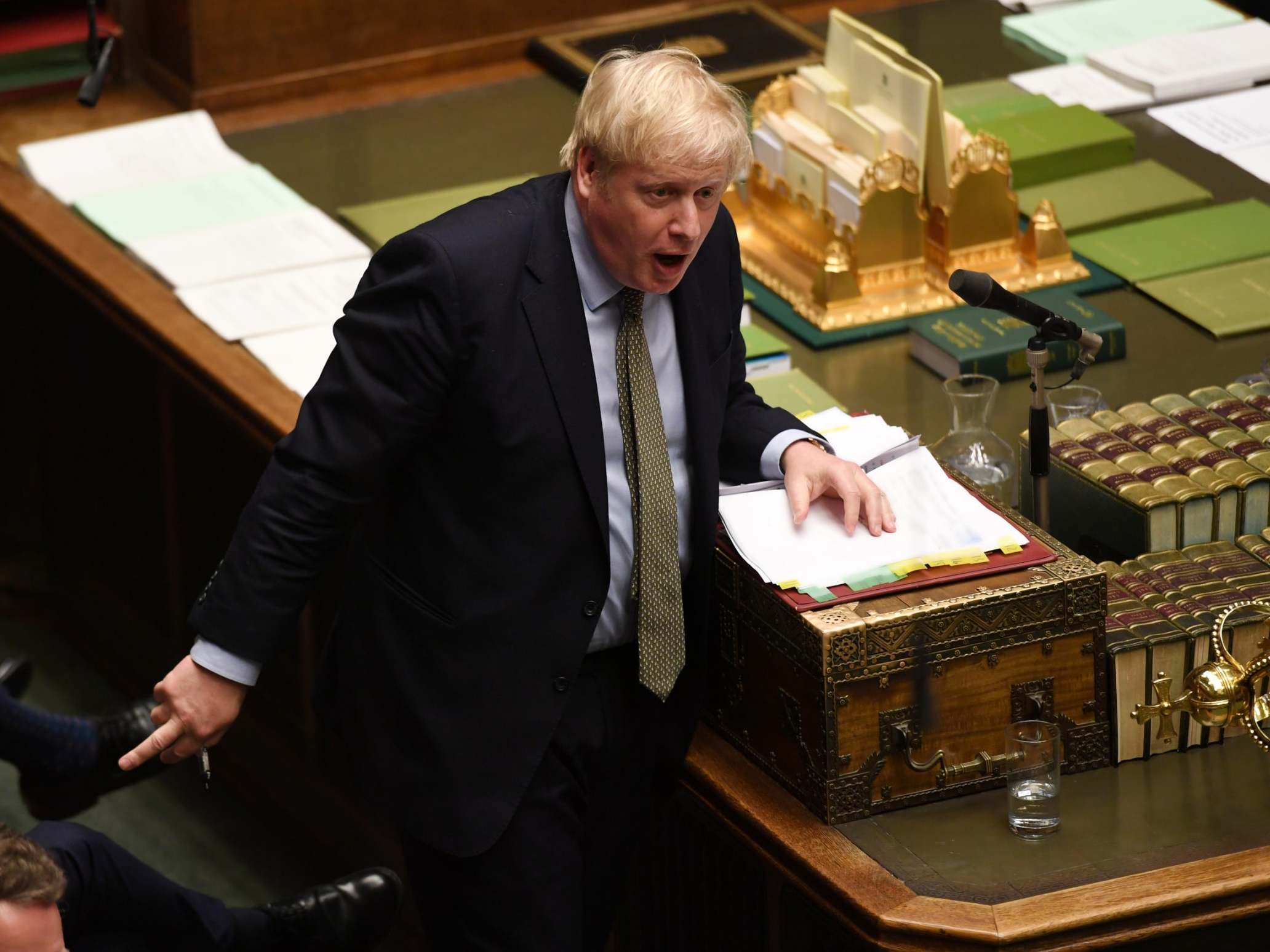Boris Johnson’s real battle with the EU is only just beginning
The prime minister has got MPs to back him – but his next test, on a trade deal, will be even tougher, writes Sean O'Grady


The Brexit bill is the piece of legislation that will formally take Britain out of the European Union so far as British law is concerned. The EU Withdrawal Bill must, in its various iterations over the past couple of years, hold the record for enjoying (if that is the word) the most tortuous and protracted passage through parliament, frequently amended, sometimes lost (by historic margins) and even withdrawn before being reintroduced like a battered old car in a banger race.
Now, however, it looks well on its way to the statute book. It has passed its third reading in the House of Commons, which means that MPs can no longer amend it. Thanks to the government’s thumping majority, the bill is now bound to have an easier time of it than under the previous minority administrations of Theresa May and Boris Johnson.
Now the bill is to be presented to the House of Lords – where the government does not hold a majority. Under the Salisbury convention, the bill cannot be rejected by the Lords. This is because Brexit was an (obviously) important part of the Conservatives’ 2019 manifesto and is deemed to have public support. However, their lordships can amend some details, and seem inclined to reinstate a clause from a previous version to make the government negotiate with the EU a deal whereby unaccompanied refugee children may join family members now legally in the UK. When that returns to the Commons, MPs may reject or accept it. Then the bill will go to the Queen for formal royal assent, and become law in time for Brexit Day, 31 January.
This will mark the end of one political battle; but a new one is just beginning. The recent interventions by the new president of the European Commission, Ursula von der Leyen, and the EU’s chief negotiator Michel Barnier, suggest that the free trade agreement much favoured by the British government will be neither quick nor easy to complete.
Barnier, for example, believes that, at best, only the goods elements of the trade agreement might be agreed by the UK’s preferred end date for the talks of 31 December 2020. This, though important, represents only a part of the UK’s trade with the European union – services (including the City of London and financial services) will not be covered under the Barnier timetable. The UK government will, as it has before, threaten no deal with varying degrees of conviction as the deadline approaches. An extension to that deadline has been ruled out – in the Brexit bill – but this could be reversed fairly easily (provided parliament is sitting).
Von der Leyen, meanwhile, has honoured the mandate given to her by the remaining 27 EU member states and made it plain that the EU requires the UK to abide by EU standards if it wants tariff- and quota-free access to the single market. As she said in her speech to the London School of Economics, this applies across a wide canvas: “With every decision comes a trade-off. Without the free movement of people, you cannot have the free movement of capital, goods and services. Without a level playing field on environment, labour, taxation and state aid, you cannot have the highest quality access to the world’s largest single market.”
Thus, implicitly, the EU may choose to levy a tariff on British goods (or some of them), or restrict access to services markets if it feels the British are trying to gain an “unfair” competitive advantage by liberalising rules and relaxing regulations. This, though, would tend to detract from the very point of Brexit, which is that the UK would be free to make its own decisions – to “take back control” – to suit British needs.
In some cases, as the government argues, it might mean higher standards and higher costs – as in animal welfare. On other areas – manufacturing, say – it might mean weaker workers’ rights, or in banking a lighter touch of regulation. Access to fishing grounds in one area that is particularly sensitive and complicated for both sides. While most of the fish processed in the UK is imported form EU or European Economic Area states (ie Norway and Iceland too), most of the finished products of that processing are exported to the EU.
So these are the trade-offs that will trouble the two negotiating teams in the coming months. We have, in other words, not heard the last of Brexit even though ministers are (reportedly) being told to avoid using the loaded term, to signify the new beginning. Brexit is not yet done, and the most fractious arguments are yet to begin.
Join our commenting forum
Join thought-provoking conversations, follow other Independent readers and see their replies
Comments